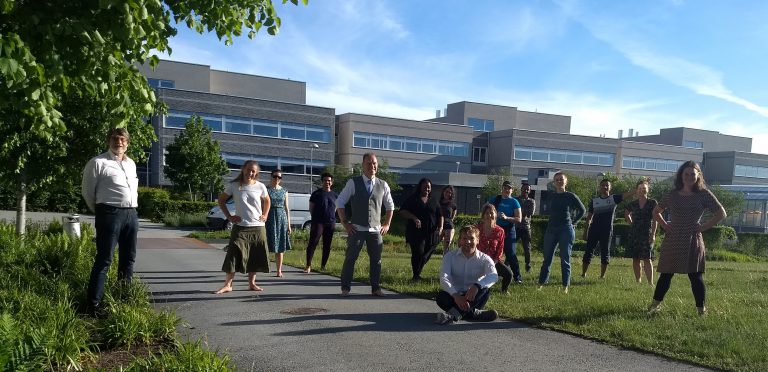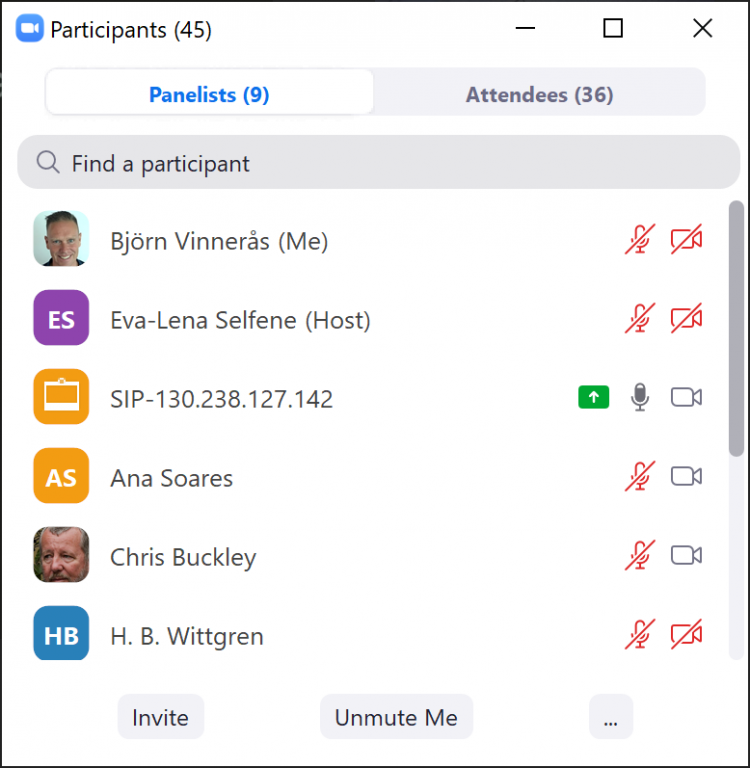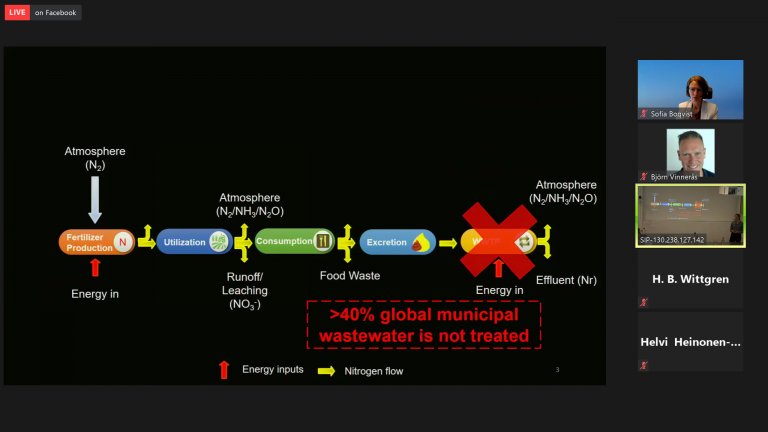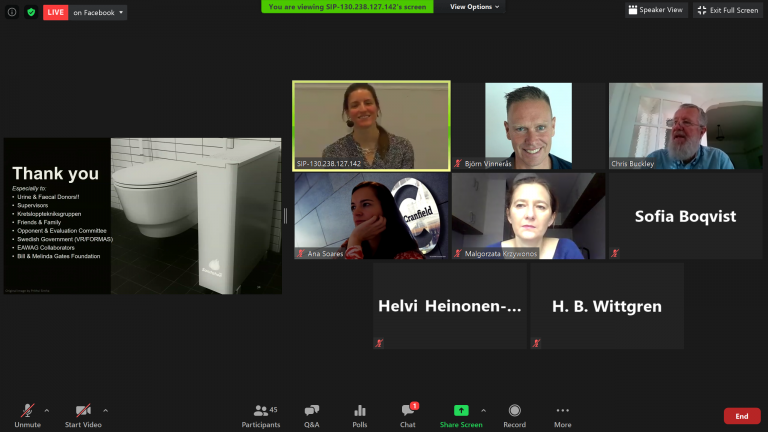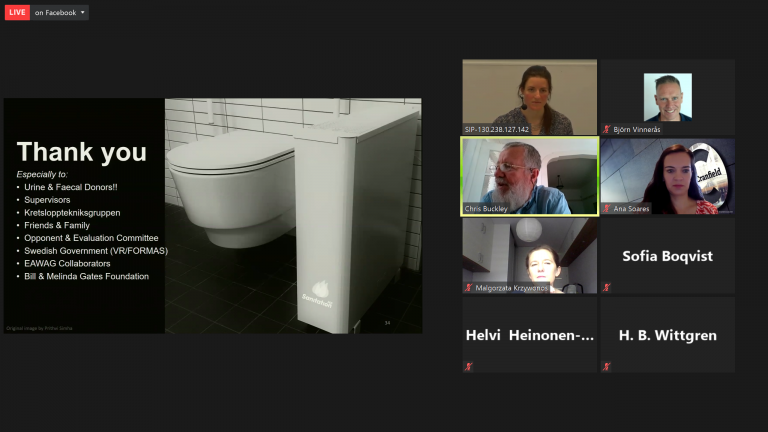
Our intern Chinmoy Deb from India, has successfully completed all his theory subjects at SLU for the Mater’s program “Soil, Water and Environment” in a duration of one year. In his theory subjects, he had worked with soil-water systems and Geochemical modelling. Chinmoy has opted for a “One-year Master Thesis” for the rest of the credits left. He was here last year for the completion of his Bachelor’s thesis on Urine Drying Technologies. This year, in continuation with his previous work, Chinmoy will be focusing on different methods and medias for urine drying. Primarily, he’ll be concentrating on reclamation of water from human urine.

